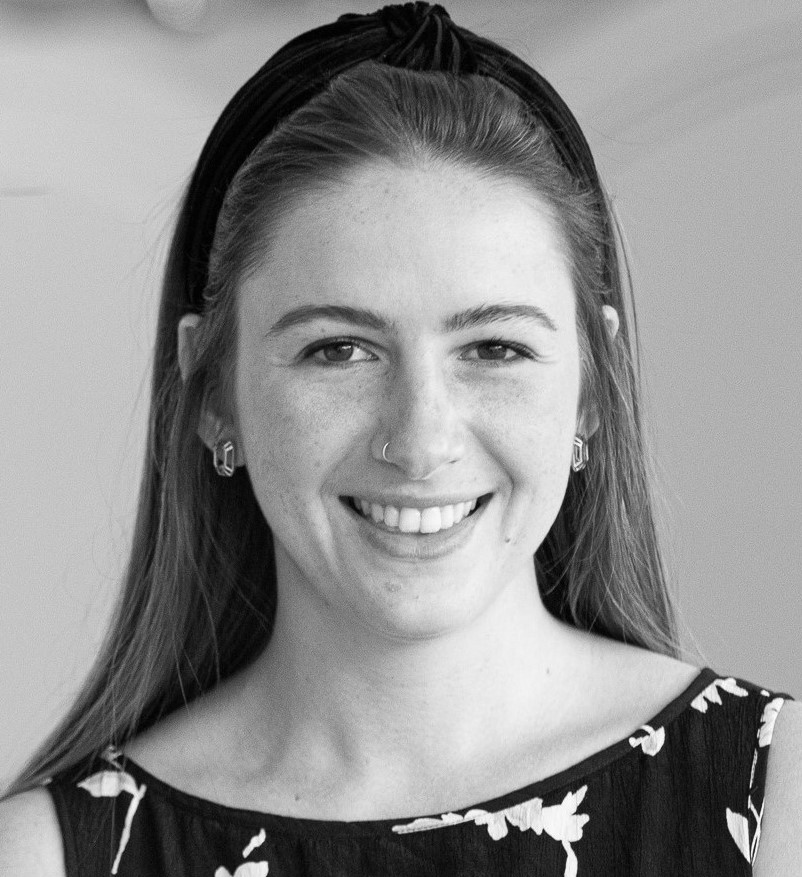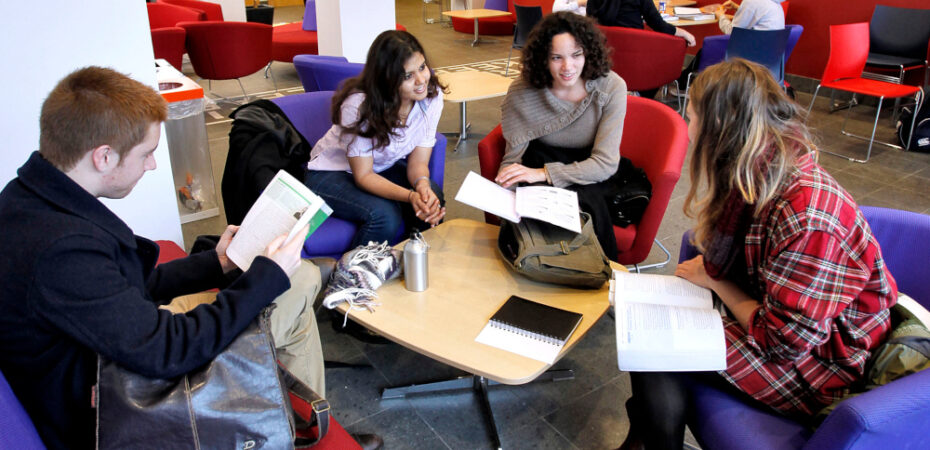
In this extra post, Maddie and Jenny explore how an innovative course – Students as Change Agents – can actively and purposefully embed wellbeing and belonging into the curriculum. Dr Maddie Kurchik is a Research Fellow at Moray House School of Education and Sport, and Dr Jenny Scoles is an Academic Developer in IAD, as well as currently a seconded Fellow to Edinburgh Futures Institute fellow. They are both researchers on the PTAS project: Crossing the Line: Understanding the Interdisciplinary Classroom.
The University’s Curriculum Transformation process has, from its inception, emphasised the vitality of student wellbeing and belonging as central to the future of Higher Education curriculum. It is increasingly becoming a priority to consider wellness and community amongst other fundamental elements of course content. Yet there are few examples of how this might be done in practice. Is it enough to simply signpost resources available to students should they find themselves in crisis, or can a more proactive and thoughtful approach be taken to wellbeing?
In this blog post, we outline an example of how wellbeing and belonging can be embedded within a course using the example of Students as Change Agents (SACHA). In its curricular rendition, SACHA is an elective undergraduate course offered by the Edinburgh Futures Institute (EFI) to all students across the University. Each term, an external partner poses a problem or question for students to tackle in groups. In both the 2021 and 2022 deliveries, the course provided an example of how wellbeing and belonging can be promoted, both in terms of course content, as well as through course design itself.
Course Design
To begin with, the course is flexible: the pace is student-led, and it is graded on a pass-fail basis. This allows students to manage their time and stress autonomously as they navigate life within and outside of university. In addition, students develop a unique relationship with their coach – a member of academic or professional staff within the University – who meets with their group weekly. This learning environment is less formal than typical lecture settings allow for. Students are more comfortable and casual with their coaches; they feel safer approaching them with personal concerns and can perhaps display their vulnerabilities more easily.
Of course, there are also some novel challenges posed by this course design, which can cause feelings of uncertainty and even anxiety in the students. A student on the course explained, “I’ve sung praises about the fact that it’s independent, but also it was one of the reasons it was difficult as well”. The course’s flexibility has also proved difficult for some students as they encounter a higher level of uncertainty than they are used to in previous learning environments. Coaches need to adopt an especially responsive and reactive approach to ease students’ anxiety, which places an emotional labour demand on the coaches, and needs to be considered in the support structure of the course
Group work is central to SACHA- students‘ work, and students are assigned a place in the same small group of peers for the entire term. As these students are from different Schools across the University, this continuity encourages students to build strong relationships with each other that promote a sense of belonging beyond their regular disciplinary boundaries. For instance, one student explained:
It’s great for making friends as well. To be honest, we all bonded like really quickly. Other courses have group projects but there’s also often a lot of independent, like solo work, whereas everything was heavily group based [on SACHA]. We all got on really well, as if we’d known each other for a long time. Just for the social aspect, it’s a great course to take.
On SACHA, students are able to connect with the joy of learning in a low-pressure environment. “I made friends, laughed a lot, and had fun”, shared one student.
Course Content
In its inaugural delivery in 2021, SACHA directly engaged with the topic of mental health. The external partner, the Data for Children Collaborative, asked student groups to research and suggest potential programmes for improvement to do with children’s mental health in Scotland. Over the term, students reflected on their own mental health and the resources available to them. One student contemplated
Especially after the pandemic, concerns about mental have become more prevalent, so I think we were all definitely quite passionate about it anyway, even if we hadn’t had personal encounters with it- even though it was hard, we were still happy for that to be the topic because it is very relevant and important.
Another shared, “I learned a lot about mental health itself that I didn’t know before”.
Even in its most recent edition in 2022, where the problem posed to students was not directly related to mental health, issues of belonging and wellbeing still emerged on SACHA. The external partner, CEMVO Scotland – Strengthening Communities Tackling Inequalities, asked students to consider how they might better communicate with marginalised communities to empower climate action. This had students thinking about community, its benefits, and how it can be cultivated and mobilised. One student explained, “I have had first-hand experience of community greatly improving my mental health”. Another described how the work for CEMVO made them think about “nature-based community”, and “community-based events based in a natural setting with activities that engage the environment”.
Doing Curriculum Transformation
There are a variety of ways in which curriculum transformation can and will be taken up through innovating our course design and content. We hope our work on SACHA provides an example of how wellbeing and belonging can explicitly take up more space in our curriculum, which extends beyond simple signposting of resources, and benefits our students, as well as our external communities.
 Maddie Kurchik
Maddie Kurchik
Maddie is a Research Fellow at Moray House School of Education and Sport where she works on the PTAS funded project: “Crossing the Line: Developing an Interdisciplinary Toolkit for Higher Education”. Her research interests include gender, technology, work, & pedagogy.
 Jenny Scoles
Jenny Scoles
Dr Jenny Scoles is the Editor of Teaching Matters. She is an Academic Developer (Learning and Teaching Enhancement), and a Senior Fellow HEA, in the Institute for Academic Development, and provides pedagogical support for University course and programme design. She is currently a Fellow at Edinburgh Futures Institute, and a Visiting Fellow at Edinburgh Napier University. Her interests include student engagement, interdisciplinary and professional learning, and sociomaterial methodologies.


